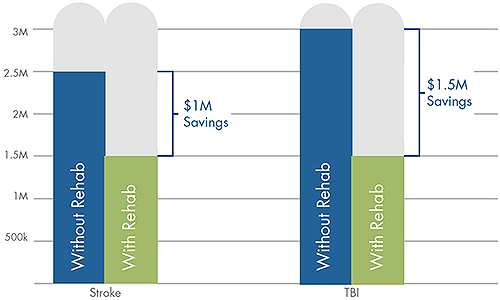Getting The Narconon Africa To Work
Wiki Article
The 10-Minute Rule for Narconon Africa
Table of ContentsNot known Incorrect Statements About Narconon Africa 10 Easy Facts About Narconon Africa ShownSome Known Details About Narconon Africa The 7-Minute Rule for Narconon AfricaAll About Narconon AfricaNot known Factual Statements About Narconon Africa Our Narconon Africa Ideas
In a series of papers with Manudeep Bhuller and Katrine V. Lken, we conquer these information obstacles and the nonrandomness of imprisonment, using new understandings into how imprisonment impacts recidivism, work, youngsters, and criminal networks - Crack addiction rehabilitation. Figure 1 Our job researches the effects of incarceration in Norway, a setting with two key benefitsWe can further connect this details to other member of the family, including kids and brother or sisters. We have details on co-offending that enables us to map out criminal networks for observed criminal offenses. Second, we can take advantage of the arbitrary project of criminal situations to courts who differ in their tendencies to send accuseds to prison.
Some courts send out accuseds to jail at a high price, while others are much more forgiving. We measure a court's stringency as the average imprisonment rate for all other situations a judge manages, after managing for court and year fixed impacts, which is the level of arbitrary project. This quasi-random assignment of court stringency can be utilized as a tool for incarceration, as it strongly predicts the judge's decision in the current case, however is uncorrelated with various other case features both by style and empirically.
Indicators on Narconon Africa You Should Know
Features of prisoners, including demographics and crime categories, are generally comparable in Norway and various other nations, including the United States, with the exemptions that the United States homicide rate is much higher, and race plays a larger role there too. What attracts attention as various, particularly compared to the USA, is the jail system.Number 2In Norway, the average time spent in jail is a little over six months, which resembles most other Western European countries. This contrasts with typical US prison time of practically three years, which remains in large part the reason the USA is an outlier in its incarceration price compared to the remainder of the world [Number 1]
The smart Trick of Narconon Africa That Nobody is Talking About
This gives much even more splitting up between small and solidified criminals than exists in the USA. There is no congestion in Norwegian prisons and far better personal safety and security, with each prisoner being appointed to their very own cell and a greater inmate-to-staff proportion than in the United States (https://slides.com/narcononza12). Prisons in Norway additionally offer well-funded education and learning, medication treatment, mental health, and work training programsOur research study on the results of imprisonment on the offender, using the arbitrary project of courts as a tool, yields three crucial searchings for. Imprisonment inhibits additionally criminal behavior. We discover that incarceration reduces the likelihood that a person will reoffend within 5 years by 27 percentage factors and lowers the corresponding variety of criminal charges per individual by 10 charges.
Little Known Facts About Narconon Africa.
We discover substantial reductions in reoffending chances and cumulative charged criminal offenses also after offenders are released from prison. Our second outcome is that bias because of selection on unobservable individual attributes, if disregarded, results in the erroneous final thought that time invested behind bars is criminogenic. If we simply compare criminal defendants imprisoned versus those not sentenced, we find positive associations in between imprisonment and succeeding crime.This stands in contrast to our analysis based on the random project of courts, which discovers an opposite-signed outcome. Third, the reduction in crime is driven by people who were not functioning before imprisonment. Among these people, imprisonment enhances engagement in programs routed at boosting employability and decreasing regression, and this eventually raises employment and incomes while preventing criminal habits.

Jail time causes a 34 portion point boost in involvement in work training programs for the previously nonemployed, and within 5 years their employment rate rises by 40 portion factors. At the very same time, the possibility of reoffending within 5 years is reduced by 46 percentage points, and there is a decrease of 22 in the ordinary variety of criminal costs.
What Does Narconon Africa Do?

A plausible description for the distinction is that Norway's prison system differs significantly, both in terms of prison-term length and jail problems, from the United States jail system. While recognizing the results of imprisonment on the offender is an important initial step, capturing spillover impacts is likewise essential for reviewing criminal justice plan and making efficient prison systems.
Unknown Facts About Narconon Africa

Ordinary the very least squares estimates reveal that children of incarcerated dads are 1 percent factor more probable to be billed with a criminal activity, family member to a mean of 13 percent, and reveal no result on institution grades. Using our judge stringency instrument, we find no statistical evidence that a daddy's imprisonment influences a kid's own criminal Drug rehabilitation offense or school qualities, yet we are unable to eliminate modest-sized effects.
The Buzz on Narconon Africa
We specify criminal groups based on network web links to prior criminal cases. Our evaluation yields three major searchings for. When a criminal network participant is jailed, their peers' chance of being charged with a future crime reduces by 51 percentage points over the following 4 years. Having an older sibling jailed minimizes the probability his younger brother will certainly be billed with a crime by 32 percentage points over the following four years.Report this wiki page